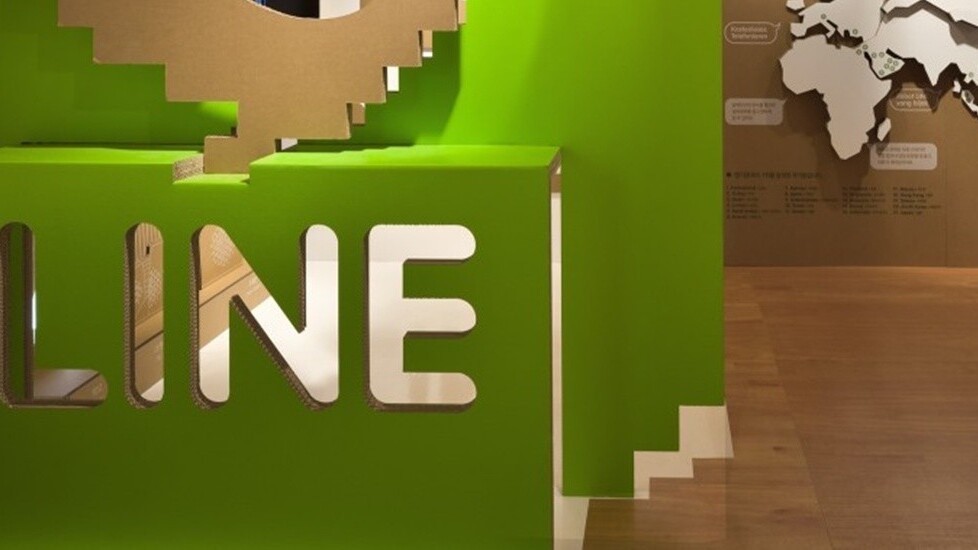
It’s been more than a week since Facebook was linked with the possible acquisition of WhatsApp. While the industry has moved on quickly — such is life when rumor and news break aplenty — the speculation has raised awareness of the significance of mobile chat apps and the steam that they are generating. Nowhere is that traction more visible than in Asia, where a relatively small yet significant proof point of the growing industry has just been announced.
Line, a Japan-made WhatsApp rival that is owned by Korean content giant Naver, just announced that it has surpassed 10 million downloads in Thailand at a press conference in Bangkok today, marking the first time it has provided a figure for a market outside of its native Japan. The company has more than 82 million downloads worldwide, so a pretty significant chunk of its user base is in Thailand, but more impressive than that is the fact that Facebook itself has 17.9 million users in Thailand (it is Facebook’s 17th largest market).
The app allows owners of Android, iOS, Windows Phone and BlackBerry devices to keep in touch via text chat or video calling (the latter is not available for BlackBerry), in a similar way to WhatsApp and RIM’s own BlackBerry messaging service. It is free to download.
For those that live in Thailand, as I do, the numbers won’t come as a massive surprise since Line, and to a lesser extent WhatsApp, WeChat and Kakao Talk are huge here. It is not uncommon to see more people using Line than Facebook in places like bars, restaurants, trains, etc, and, in the country, Line may well be installed on more smartphones than Facebook.
So, to look back at the numbers quickly, Facebook, the company that pioneered social networking and has more than 1 billion registered users worldwide, has seen a one-year old service that is only available on mobile build a user base that is more than half of its size.
This is why Facebook needs to get competitive in the messaging space.
While these figures relate to Thailand specifically, they illustrate a trend that is happening right across Asia and other emerging markets. Facebook, and other established Web giants, are being challenged by mobile chat apps, as we’ve consistently been saying July.
That’s exactly the case for Sina Weibo in China. Widely regarded as China’s equivalent to Twitter, Sina’s Weibo microblogging service has revolutionized the way that Internet users in the country communicate.
And yet, for its glory and influence, Sina is feeling the heat from WeChat, a mobile chat application that has more than 200 million users. Sina CEO Charles Chao actually admitted that users of Weibo are spending less time on the service as a result of WeChat, that’s how obvious the shift in communications consumption on mobile is. (WeChat, by the way, is owned by Chinese Internet goliath Tencent.)
All of this comes back to the same point, Facebook needs to compete with these services if it wants to retain its position as the pre-eminent Internet communications platform of today.
So don’t be surprised if you hear that it is linked with WhatsApp, or if it begins to build new features into its Messenger app, which is nothing like a mobile chat app right now.
While there is a debate about whether the Asian style of throwing near-endless numbers of features into an app will work for US consumers, Facebook needs to move on from just serving private messages to users. Even North America-based Kik, a long-standing advocate of keeping it simple, has conceded that straight-up chat isn’t enough.
Image via Urbantainer
Get the TNW newsletter
Get the most important tech news in your inbox each week.






